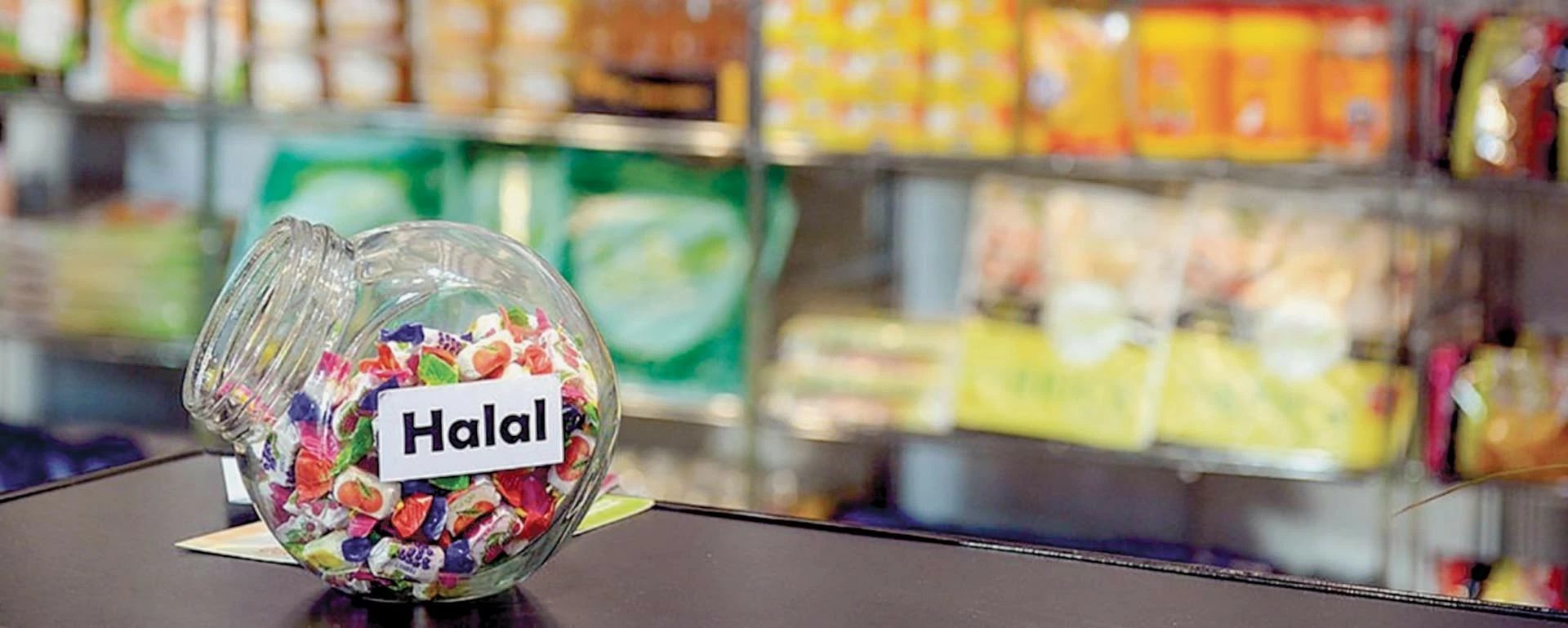
Conquering the Halal Market in Qatar
Latest
The Vietnamese Ambassador to Qatar, Mr. Nguyen Huy Hiep, emphasized this in an interview with The World and Vietnam Report regarding the potential for Vietnamese businesses to conquer the Halal market in this Middle Eastern country.
 |
| Vietnamese Ambassador to Qatar, Mr. Nguyen Huy Hiep. |
Could you elaborate on the potential for cooperation between Vietnam and Qatar in developing the Halal industry?
Vietnam and Qatar have significant opportunities to collaborate in the Halal industry, which can benefit both nations.
As a country with a developed economy and one of the highest per capita incomes in the world, Qatar still needs to import up to 90% of its food, including Halal food, due to unfavorable natural conditions. Meanwhile, with its diverse natural resources and abundant agricultural products, Vietnam can become an essential partner in ensuring Qatar's food security.
Looking at the rapid growth of the Halal market today and the fact that both Muslims and non-Muslims consume Halal products, Qatar is a market that Vietnamese businesses should pay close attention to. It is not only a consumer market but also a gateway and transit hub for Vietnamese Halal products to enter the regional market, starting with food and expanding to other products such as fashion, pharmaceuticals, and cosmetics.
In addition to increasing Halal food exports to Qatar and the region market, the two countries have potential for cooperation in Halal tourism, in which Vietnam could offer travel products and services that meet Islamic standards, especially for the premium Qatari tourist segment. The embassy has observed an increasing trend of tourism expanding into Southeast Asia, beyond traditional destinations like Thailand and Malaysia. Therefore, Vietnam needs to prepare well to welcome the wave of tourism from Muslim countries.
Based on what you have shared, do you think there are significant opportunities for Vietnamese businesses to approach and penetrate Qatar's Halal market?
The Halal market is growing rapidly worldwide, not only in Muslim-majority countries. The Middle East, in particular, is considered a high-potential region. Vietnam has many agricultural and food products that meet Qatar's Halal needs and standards.
The relationship between the two countries has developed positively in recent years. Our leaders have paid increasing attention to strengthening ties with the Middle East and the Gulf region, including Qatar. These favorable conditions offer Vietnamese businesses opportunities to collaborate with Qatari partners in developing Halal products and expanding their market presence.
However, there are still many challenges facing Vietnamese businesses wishing to conquer this Middle Eastern market, aren't there?
It’s important to recognize that Vietnam is still a relatively new name on the global Halal map, while many ASEAN countries, like Thailand, have long established their Halal product brands.
Fortunately, the Vietnamese government, ministries, local authorities, and the business community have become more aware of the potential of the global Halal market and have made many efforts to standardize and unify the management of Halal certification and standards.
The establishment of the National Halal Certification Center on April 24, 2024 is an important first step to professionalize the production and export process of Vietnamese products that meet Halal standards..
For Qatar, Halal standards are generally aligned with those of other Gulf Cooperation Council (GCC) countries. In some cases, such as with seafood products, Qatar's requirements are even less stringent than Saudi Arabia's. Thus, once Halal products have entered the GCC market, it becomes easier to access the Qatari market. Of course, achieving Halal certification for Qatar or the GCC requires businesses to conduct thorough research on the market and customer preferences and invest the necessary resources.
Compared to the larger markets of Saudi Arabia and the United Arab Emirates (UAE), Qatar's Halal product market is smaller. However, the level of competition is equally fierce, as Vietnamese businesses must compete for market share with well-established companies from the Middle East, South Asia, and Southeast Asia, especially competitors from Syria, Lebanon, Iran, Oman, India, Pakistan, Sri Lanka, and Thailand. In this context, besides ensuring product quality, businesses must also consider factors such as pricing, diverse taste preferences, and product design to enhance competitiveness.
The Embassy encourages businesses to explore the market firsthand, assess local tastes and consumer trends, and develop appropriate business strategies. The Embassy committes to supporting Vietnamese enterprises, helping them introduce and promote high-quality Halal products to the Qatari market.
What should Vietnamese businesses keep in mind when approaching the Halal market in Qatar, Ambassador?
To successfully approach and penetrate the Qatar market, in my opinion, Vietnamese enterprises need to focus on several key factors such as: Understanding Qatar's Halal regulations and standards, local tastes and consumption habits, and business practices; Finding and building reliable partners in the area to get support in penetrating the market and building reputation for their products.
Enterprises need to invest in promoting and marketing their products to attract the attention of local consumers and Muslim immigrants, for example, participating in local Halal events and exhibitions. Enterprises need to focus on thoroughly understanding the culture and religion of Qatari people and immigrant communities who need to use Halal products, ensuring product quality and food safety according to Qatari, regional, and international standards.
 |
| Halal Qatar is a market worth the attention of Vietnamese businesses. (Source: Getty Images) |
Another factor is that to successfully export Halal products to Qatar, Vietnamese enterprises must first comply with customs regulations on the import and export of goods and food to this market, including regulations on documents of origin of goods, regulations on labeling, language, etc. Qatar's regulations on food are regularly updated by the Food Safety Department, Ministry of Health. This is an important source of information that enterprises should refer to before exporting goods.
In recent times, the Embassy has researched and sent relevant documents to domestic ministries and agencies, including guidelines on importing Halal food, and lists of Islamic establishments licensed to certify Halal slaughter and Halal products, issued by the Qatari Ministry of Health. These documents outline detailed requirements for ensuring products meet Halal standards when imported into Qatar, and provide a list of Islamic certification bodies worldwide recognized by Qatar, including one in Vietnam.
Businesses can refer to these documents for necessary and useful information when selecting suitable export products (note that Qatar applies strict Halal standards, especially for meat and processed foods), as well as choosing a reputable Vietnamese facility to grant Halal certification, ensuring that products can access the market.
With such potential and opportunities, what is the Embassy's orientation in promoting cooperation in the Halal industry between the two countries?
In the coming time, the Embassy will continue to foster and strengthen cooperation with relevant authorities and business associations in Qatar to gather and provide market information, including local Halal regulations and standards. We will also actively seek cooperation opportunities to introduce and connect Vietnamese businesses with their Qatari counterparts, such as through upcoming events like the Doha Coffee International Exhibition (September 26-28) and Food Qatar and Qatar Halal Forum (November 12-14).
Additionally, the Embassy will support the promotion of Vietnamese Halal products and facilitate joint projects in the Halal sector, enhance cooperation, and share experiences in producing and processing Halal products.
At the same time, the Embassy will work towards the signing of agreements between relevant agencies in both countries to establish a legal framework for cooperation in the Halal industry, starting with agreements between Vietnam’s Directorate for Standards and Quality and Qatar’s Standards Authority.
Thank you so much!




















